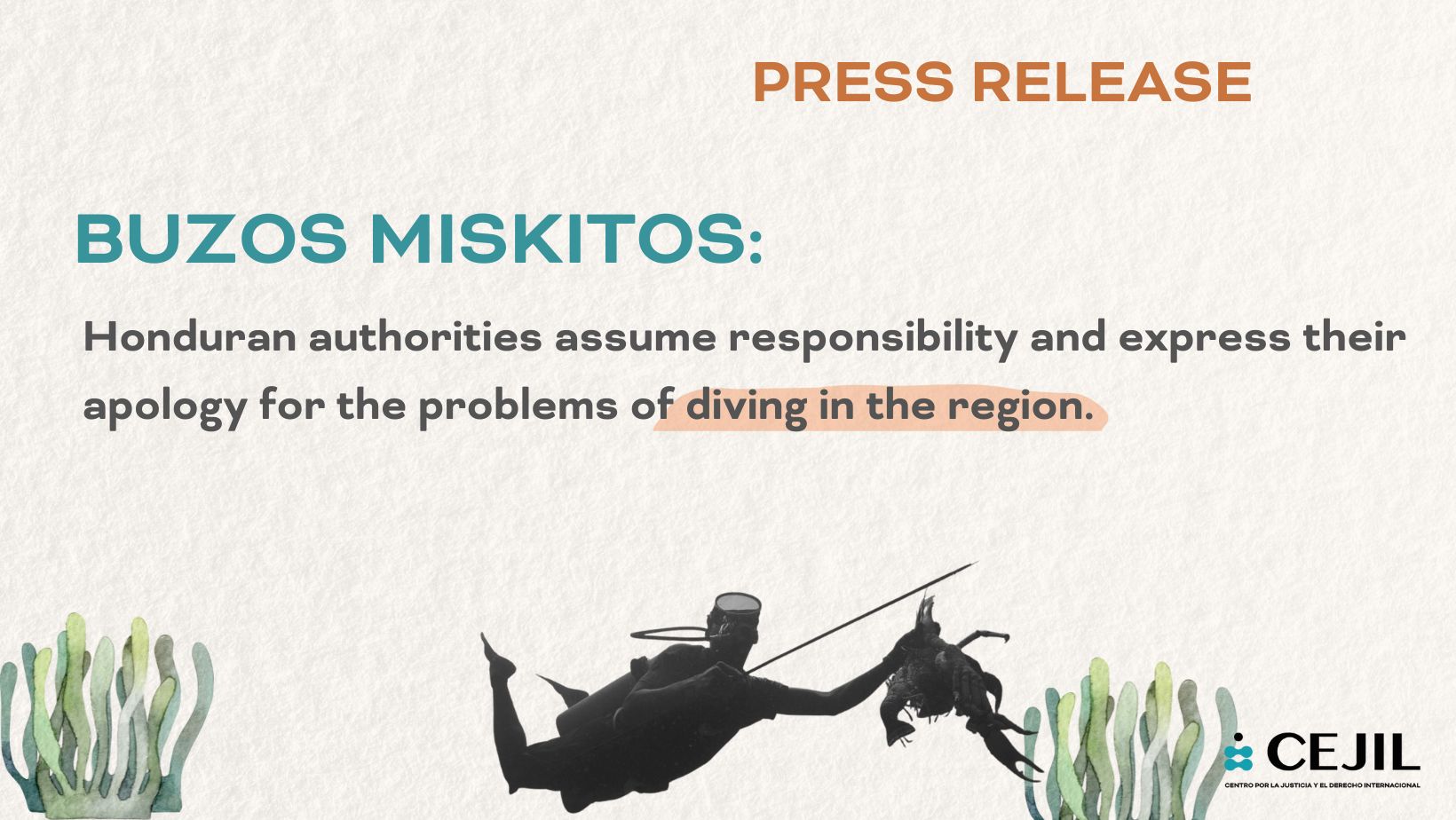






San José, 31 March 2023
Yesterday, representatives of the State of Honduras visited Puerto Lempira, the department of Gracias a Dios, to celebrate the “Public Act of Recognition of International Responsibility, Reparation, and Commitment to Non-Repetition” under the framework of the judgment issued by the Inter-American Court of Human Rights (IACHR) in the case of Opario Lemoth Morris et al. (“Miskito Divers) vs Honduras in 2021.
This act was developed in compliance with one of the measures issued by the Inter-American Tribunal to correct the human rights violations faced by divers and their families as a result of the problem of freediving: a high-risk activity that has resulted in more than 4,000 divers sustaining disabilities, more than 400 deaths, and many others missing at sea. According to local media reports, the last diving season alone resulted in 102 divers becoming disabled after suffering from decompression syndrome due to the lack of safe conditions during lobster and crustacean diving.
The act/ceremony of recognition was attended by, among others, representatives of the Office of the Attorney General of the Republic, the Ministry of Labor, the Ministry of Health, the Secretariat of Human Rights, the Merchant Marine, and the Ministry of Social Development. The authorities recognized the responsibility of the State in the violation of the rights to work, health, social security, and life of divers and expressed their apologies for the issues in question.
For its part, the Ministry of Social Development expressed its commitment to advance a series of measures that respond to the situation of historical abandonment of the Moskitia. In particular, it planned to make progress in a census on the situation of divers; the distribution of a bonus of 5,000 lempiras to divers in the region who have sustained a disability; the tendering and purchase of three hyperbaric chambers for the treatment of decompression syndrome; and the installation of a permanent office in Puerto Lempira to monitor the situation of divers and the various issues in the region.
For her part, Claudia Paz y Paz, the Central America and Mexico Program director at the Center for Justice and International Law, one of the organizations co-representing the divers before the Inter-America Court, highlighted the struggle for justice that divers and families have undertaken before the Inter-American Human Rights System.
She indicated that the consequences of divers fishing in irregular conditions persist in La Moskitia, where divers face unsafe and inhumane working conditions; and called for addressing this problem from an intersectional perspective, which recognizes and addresses the conditions of vulnerability present in this population, such as disabilities, poverty, and the lack of basic assistance.
The CEJIL representative also called on companies that operate in Honduras and the Americas to respect human rights in all their operations and adopt effective measures to prevent, and where appropriate, remedy violations.
The divers and family members who participated in the event also raised their voices to demand devoted compliance with the Court’s ruling, as well as the recognition of all divers in the region impacted by the situation, their inclusion in governmental programs of social support, and the ending of their human rights violations.
The organizations representing the divers before the Court, CEJIL among them, the Association of Disabled Honduran Miskitos Divers (AMHBLI), Mairin Indian Miskitu Asla Takanka (MIMAT), Almuk Nani Asla Takanka (Consejo de Ancianos), the Research and Communication Reflection Team of the Society of Jesus (ERIC-SJ), and the Legal Team for Human Rights (EJDH), recognized the State’s will in advancing the case and demanded that Honduras respond to the Miskitia situation promptly and in accordance with the commitments assumed in the judgment. The Honduran Miskitia cannot continue to live in oblivion.
Help us continue this critical and urgent work with a donation!
DONATE NOW